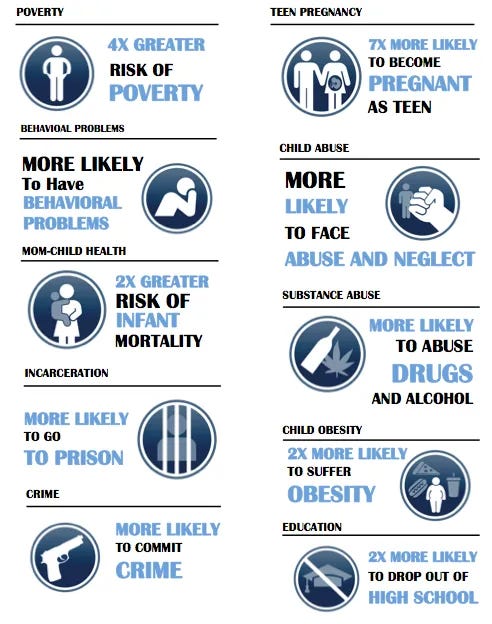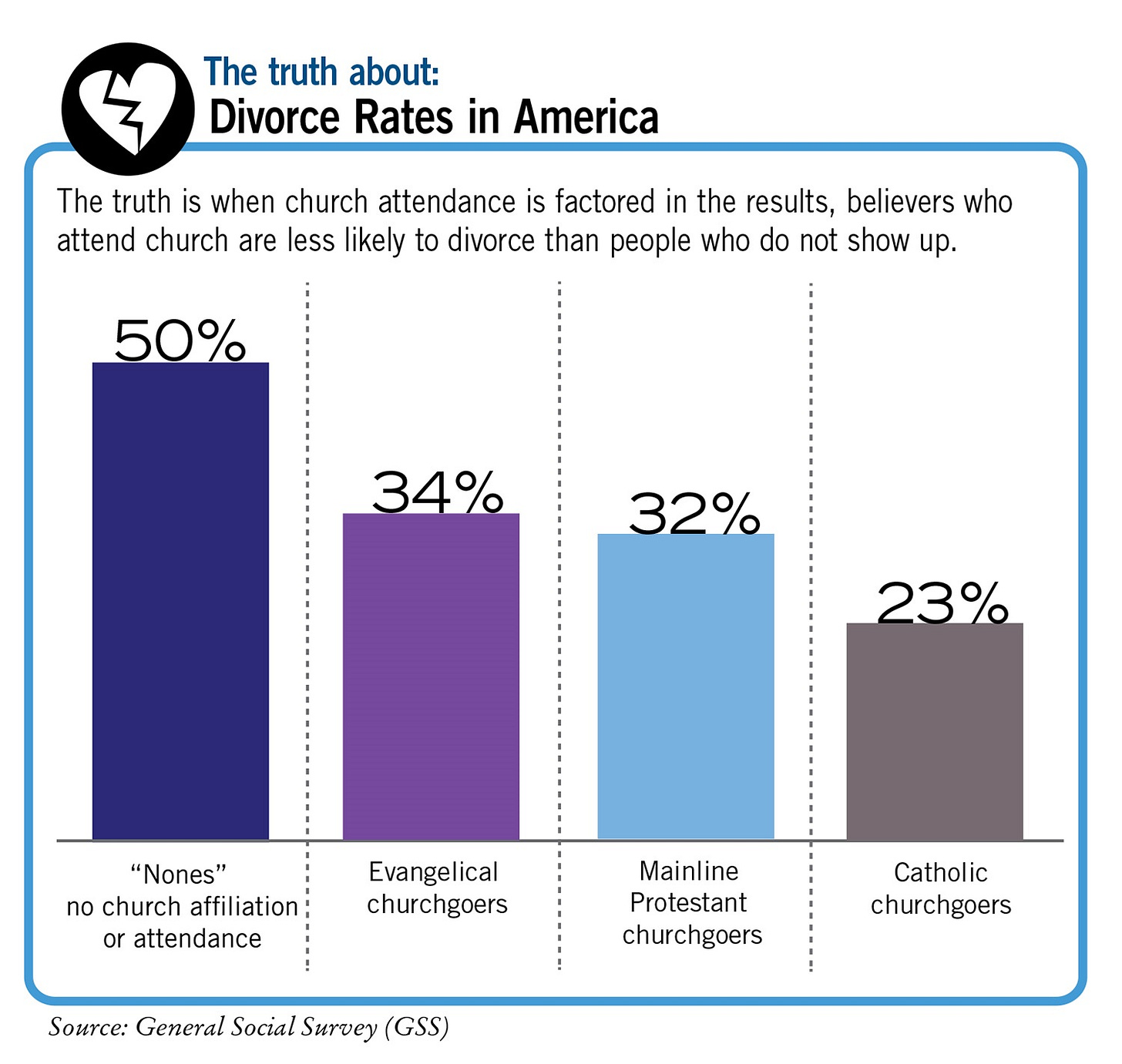DO NOT MARRY HIM.
The Cost of Marrying an Unmoored Man.
You are about to make a decision that will determine whether your children know their father, whether your home remains intact, whether the next 50 years are marked by flourishing or fracture. You are about to submit your body, your future, and your children to a man’s leadership. This is the most consequential decision you will ever make.
So, how do you know if you can trust him?
The answer is: you can’t. At least, not on his own.
I’ve spent years walking alongside young married couples. I’ve seen marriages fall apart. I’ve seen marriages on the brink find restoration. In fact, I have yet to see a marriage that doesn’t go through at least one moment or season where it feels like everything could fall apart. Some claw their way back from the cliff to become healthy again and others don’t.
What separates those who make it from those who don’t? There are many factors, some unique to each couple, some patterns that repeat across marriages. I’m not going to pretend I can diagnose every broken marriage or hand you a simple formula for success. But I have watched one particular pattern emerge with alarming frequency, especially in recent years. And it’s gotten worse (significantly worse) since the pandemic isolated an entire generation of young men.
I call it “the unmoored man.” Think of a boat tied to a dock. The mooring (the rope and anchor) keeps it from drifting out to sea when the winds pick up. An unmoored man is a man without that anchor. He has no Christ to submit to, no band of brothers to hold him accountable. When the storms of life come, and they always come, there’s nothing to keep him from drifting.
So if you’re thinking about marriage, wondering if he’s the one—I’m here to help. Here’s what you need to know, what you need to look for, and what you need to run from.
Unmoored: Led by His Heart, Looks Like the World
This man is dangerous in two specific ways.
First, he is led by his heart. That means he’s subject to the whims of his emotions. He makes decisions based on what he feels, what’s appealing to him in the moment, what he really wants—rather than submitting to a higher authority. No matter how good a man’s heart seems, it is sinful and will choose itself when push comes to shove. A man led by his heart is tossed about by his emotions, his wounds, even by how you treat him on a given day. There’s no external corrective. No compass outside himself.
Second, he looks like the world. He gets swept up in what is culturally acceptable rather than standing on ancient wisdom that might run counter-cultural and cost him something. This could be shifting sexual ethics, consumerism, toxic political ideologies, honestly whatever the moment demands. Instead of being willing to sacrifice for truth, he takes the path of least resistance. He mirrors the culture around him rather than being shaped by Scripture. He bends to social pressure rather than bending his knee to Christ.
Scripture warns us about this type of man. In Ephesians 4, Paul describes what happens when we are unmoored, untethered, unanchored: “Then we will no longer be infants, tossed back and forth by the waves, and blown here and there by every wind of teaching and by the cunning and craftiness of people in their deceitful scheming.” This is the unmoored man—immature, tossed about, easily influenced, captured by whatever ideology or emotion or cultural moment feels compelling. He has no anchor to hold him steady when the storms come.
This is terrifying because the very nature of marriage is submission. You are agreeing to follow his leadership and that’s only safe if he’s following something greater than himself.
We’re drowning in unmoored men right now. The pandemic isolated an entire generation, sent them to devices, to porn, to basements, to video games. Fewer people are connected in helpful ways. Even before COVID, men were trending toward isolation—broken homes, no mentors, no accountability from teams, jobs, or friendships. Now it’s exponentially worse.
Scores of young men are getting married who have no community. No church. No one to whom they are under authority. You might say, “Isn’t the man supposed to be the authority? Isn’t the woman supposed to submit to him?” Christianity teaches that men lead in marriage, with a sacrificial role to lay down their lives for their wives as Christ did for the church.
But here’s the problem: if that man has not submitted to Christ, and if that man doesn’t have other men ensuring that he does, you’ve got a detached man. And marriage with this type of man puts everything you have at risk—your financial security, your home, the well-being of your children, the future of your grandchildren.
Not that I need to pile on here but the statistics on children disconnected from their biological fathers are devastating. Father absence increases the risk of depression and anxiety in children. Children from fatherless homes experience lower self-worth and confidence. They have more behavioral problems and often develop intimidating personas to mask fear and depression. They struggle with trust issues and forming healthy attachments in relationships. Father absence is linked to earlier and riskier sexual activity, poorer educational outcomes, increased risk of obesity, higher risk of substance abuse, and higher crime rates. Fatherlessness is even a predictor of homelessness—a large majority of runaway children have an absent father.
When a man is led by his heart and looks like the world—when there’s no external corrective—marriage becomes a terrifying gamble with stakes you cannot afford to lose.
A Man Under Authority: Submitted and Surrounded.
Let me explain what the ideal looks like.
The man under authority is submitted to Christ and surrounded by accountability. These are two non-negotiables, both irreplaceable in marriage.
Submitted to Christ. This man has bent his knee to Someone greater than himself. He does not lean on his own understanding, but instead what he believes Christ has commanded him to do. He does not treat you as he feels you deserve to be treated in the moment, but as Christ would have him treat you, sacrificing himself, giving himself up as Christ did for the church. His compass is outside himself. His playbook is Scripture, not his own heart.
Think of the Roman centurion in Matthew 8. When his servant was dying, this commander went straight to Jesus. He’d spent his life serving Caesar. He understood chains of command. He knew who had power and who didn’t.
And he recognized that Christ had authority over life and death.
He said to Jesus, “I myself am a man under authority, with soldiers under me. I tell this one, ‘Go,’ and he goes; and that one, ‘Come,’ and he comes.”
The centurion had seen Caesar’s word move armies and change nations. Now he stood before someone with greater authority. Christ would later make explicit what the centurion had already gleaned: “All authority in heaven and on earth has been given to me.”
When death was knocking, the centurion didn’t trust his own power, ability, or earthly rulers. He instead went to the one with real authority. He knew who to submit to. He knew who could heal his servant.
This is what it means to be a man submitted to Christ. When the crisis comes, he knows where to go.
Surrounded by accountability. This man has a community of men who will not allow him to abandon his beliefs without incredible social cost. Men who will speak truth to him. Men who will cast vision for who God made him to be and how he’s currently falling short. Men who will pummel him with reminders of his scriptural commitments, his communal commitments. Men who will, if necessary, drag him back when he’s about to blow up his life.
Submitted and surrounded. This infrastructure, this combination of submitted authority and surrounded accountability, provides the insurance necessary for you to feel safety and security in submitting to a fallen, sinful man. Because you’re not just trusting his heart. You’re trusting that his heart is tethered to something (to Someone) greater. And you’re trusting that if he drifts, there are men in his life who will yank him back.
This isn’t just my opinion. It is proved out by data: According to research from the Institute for Family Studies, regular church attenders—those who attend two to three times per month or more—marry at significantly higher rates and divorce at significantly lower rates than their less devout peers. The difference is dramatic across every decade studied. Commitment to one’s faith appears strongly correlated with commitment to one’s spouse.
This isn’t just pastoral advice. This is measurable, verifiable protection.
How Can You Tell the Difference?
So how do you discern whether a man is unmoored or under authority?
An unmoored man might have a Bible verse in his social media bio or wear a cross necklace, but he’s not going to church regularly, serving at that church, tithing, or living his life in service of a greater cause. He cannot name the men in his life who have permission to tell him he’s screwing up. He’s not being discipled or mentored by anyone. His Bible isn’t marked up. He has no rhythms of male community, no weekly men’s group, no regular discipleship.
When you ask him about accountability, he deflects. He gets defensive. He tells you he’s got it handled.
Red flag.
A man under authority, a man who is submitted and surrounded, looks different. He can tell you about his church and what he does there beyond showing up on Sunday. He can name the men discipling him, the men he’s learning from. When you ask who would call him out if he was screwing up, he doesn’t hesitate, in fact, he gives you names.
When you ask, “What would happen if we started sleeping together? If your roommates didn’t see you come home for a weekend?” He can tell you exactly which men would drive to wherever he was, drag him out, and have an intervention. He’s been confronted by other men about sin in his life before, and he can tell you how he responded.
Here’s the final question I want you to ask yourself:
"If this man walks out of our marriage and leaves me with a screaming 2-month-old in my arms, which three men will I call to drag him back home?”
If you can’t answer that question with confidence, if those men don’t exist in his life, you’re looking at an unmoored man.
Where to Find Men Under Authority
This is what associations and institutions do for us that online communities often can’t. This is why you should be plugged into a church long-term. Why Christian schools, universities, even Christian businesses of a certain size matter. Why living near family with historical relationships matters. These contexts give you something priceless: they give you people who know him, who can vouch for him, who can tell you who he really is.
The hard part with random bars, with meeting online? You don’t know him. You don’t know anyone who knows him. You lack any insider knowledge into who he is, where he’s been, who would keep him accountable, whether he’s truly in submission. This is one major casualty of outsourcing our most important decision (who our life partner will be) to the unaccountable internet.
A Word on Submission.
Before everyone starts commenting because I used the word submission in this article… let me get something off my chest: Do not let the popular cultural forces of today redefine what leadership and submission look like. Christ led His church and His disciples through a life lived in sacrifice, in service, and in generosity. Biblical leadership is nothing to be scared of. We associate submission with power dynamics, with exploitation, with maltreatment but that is not what’s intended in the biblical arrangement of marriage. It’s been used as a bludgeon, yes, but that’s a perversion, not the design.
I’ve never met a woman who, when she found a good, godly man who is submitted and surrounded, did not cherish the idea of being led by him.
A Word For Parents
For those of us raising boys: Never believe your son is good enough on his own to lead a family. He may be sweet, kind, gentle, sacrificial—but he is flawed and sinful. He needs to be submitted and surrounded. He needs a compass, a purpose, submission to a Person greater than himself. He needs men around him who will hold him accountable. It can’t be found in his heart. That is both bad for the man and unfair to his future spouse.
For those of us raising girls: Your daughter may be strong-willed, an incredible leader, a stellar athlete, a high earner. But the nature of Christian marriage is to find a good man who will lead her well, so she can submit to him as he submits to Christ. This may not be in vogue, but it is what our faith teaches.
The Warning
My final word of warning is this: Stop marrying men who are averse to accountability and unwilling to bend the knee in submission to a higher authority. Stop marrying men who are led by their hearts and look like the world.
Do not give away your life cheaply.
Do not attempt to compensate for his lack of leadership by relying on the power of your personality to change him.
Do not try to distort marriage into an arrangement that doesn’t require submission and trust, making it more of a democratic partnership, to protect yourself from an unqualified man. That type of compromise is cover for a sad acceptance of a less-than-ideal man.
Instead, find a man under authority, a man who is submitted and surrounded.
Wait for that man.
Run from any other.
-JW
Don’t forget to check out Part 2 of this series:
About the Author:
Currently, I serve as the Executive Director of Them Before Us, advocating globally for the rights and well-being of children.
I am also the co-founder of All The Good, a leadership organization helping non-profits do all the good they are called to do.
I studied Cross-Cultural Ministry and Humanitarian and Disaster Leadership at Messiah and Wheaton. I read a lot and sleep less than I probably should.
My wife and I live in Charlotte, North Carolina with our 4 kids.









I need to save this article. To remind myself of the man I want to be (and that’s a daily reminder). And to put in front of my 3 children when their time comes.
God knew I needed this article. Thank you so much for writing it!